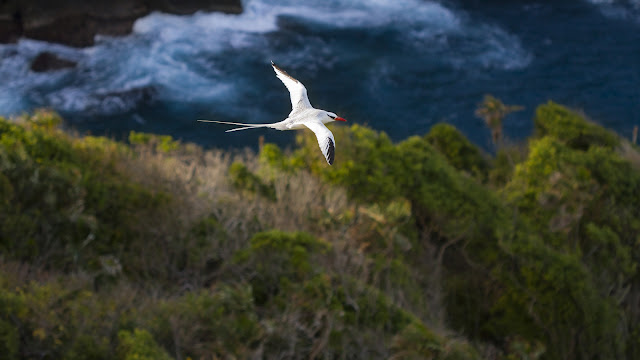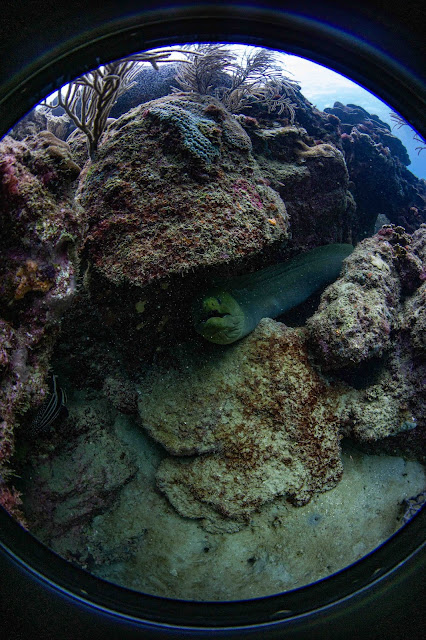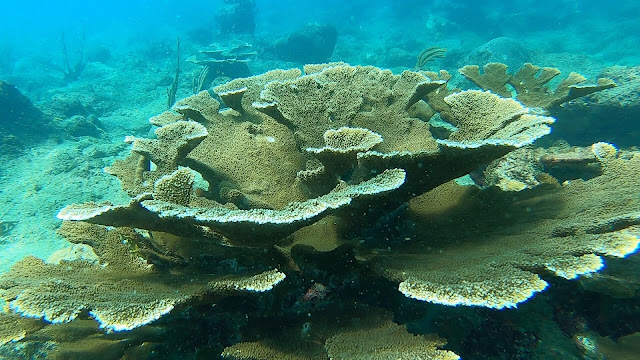Theo's Friend
I keep a lab/ office in my parents’ home in Central where I was born and grew up with two younger brothers. My Dad was a teacher and we went to primary school where he was teaching, Palmiste Government Primary just beyond Longdenville. My mother was the teacher at home. I moved to St Joseph’s Convent in St Joseph, then went to UWI St Augustine. For my undergrad, I studied Plant Sciences. Professor Julian Duncan and Dr Ralph Phelps made me fall in love with plant science; theirs was an era of true scholarship, one that required you to read for your degree. I am a voracious reader, cultivated by my parents.
 |
| The seeds that saved her life, photo by Ricardo Messon |
“A cow should graze where it’s tied”
That’s what a professor told me when I was deep in a study of hot peppers for the MPhil while working at the Cocoa Research Unit (CRU now CRC).
I started as a technician in pathology; experiments to find cacao plants tolerant to black pod disease; this had international relevance. Dr Butler was head of CRU at the time. I was fortunate to be given the opportunity to work in every department of CRU, from 1998 to 2011, ending in post harvest processing, fermentation, drying and quality assessments.
All the while, I was pursuing the MPhil in Plant Sciences, an intense study on Hot Peppers.
I ate my way through peppers which was a process not a project.
For two years of that work, I was depressed, sitting in a greenhouse crying for hours questioning my life choices. Near the end of my time with CRU, I was sent to France to learn statistical techniques for work on some CRU project. There were also many papers in the library that I wanted to read which were in French or Portuguese. So I gave myself an expensive carrot to complete: I signed up for French immersive in the south of France; I paid for it in full.
The day I walked in my thesis, July 26, 2011, I headed to the south of France for seven months. The relief and disbelief were immeasurable.
 |
| Sarah Bharath on a cocoa estate, photo by Charlene Kent |
Agriculture in any language
When I entered my first class in France, I realized this was the best decision of my life. It allowed me to purge the grad student experience and unpack a lot of trauma. Then I applied to the Institute for Mediterranean Agriculture. They could not believe that I came so far to pay money to learn Mediterranean agriculture, so I got a lot of discounts. I was determined to not just be proficient in French but in Agriculture and French.
I came back to Trinidad and reapplied to CRU. There was no job for me at CRU and I kept trying to find work. It was a desperate time until I realised I could not even sell soap! Two Martiniquan women who came to Trinidad with no English gave me an incredible opportunity to dive right back into cacao and in full French mode. Soon after that, I spent several weeks in Guadeloupe training cacao farmers and chocolate makers.
French brought me back to cacao.
 |
| Photo by Charlene Kent |
What I learned from farmers
When I could not land a job, I started volunteering with farmers. The Meridian Cacao Microlot programme started in 2016. They had been sourcing beans from Trinidad’s larger estates since 2012. Meridian supplies the international craft chocolate industry and this project was seeking farms able to produce unusual chocolate profiles and flavours. In 2016, our collaboration created the opportunity to bring technical support to these farmers producing quality beans that would fetch premium prices.
It was a humbling time, learning from farmers, meeting people where they are and building relationships. Chocolate becomes a gateway. To make and use chocolate as a teaching tool is incredibly powerful. I was unlearning while I was teaching, and travelling across the island with basic tools of my trade.
Working alongside farmers made me appreciate how food allows you to meet everyone everywhere. And on a farm, the entire family is almost always involved.
I have learned to keep it simple. Touch. Taste. Smell.
At the end of the day, we all want connection. We want to take things apart like kids. Learning is like Sesame Street: playful moments and experience. So I went to the farmers, some of which have now put TT on the international map with high quality beans. These farmers shared and co-created what they learned. All they needed, some of them, was the confidence to speak what they know.
Soil is everything
Though my soil story started in 1998 with cacao, it came into sharp focus with Erle (Rahaman-Noronha) when I took his permaculture course in 2014. Everything shifted into place: Science Psychology Social. Johnny’s (Stollmeyer) contribution about the invisible structures blew me away: Everything is One.
Madeline Donald came from Holland to work in cacao. She was in Gran Couva doing a thesis on the other plants in the cocoa agroforestry system. Her thesis, A Shaded Understory, looked at how the biodiversity of plants in cacao agroforestry systems contribute to the well-being of the communities – plant and human - that live there.
Then I was introduced to the work of Lucien Seguy (who died during the pandemic) on the importance of keeping soil covered with living plants, in order to ensure a healthy and productive ecosystem. That challenged my French to a new level.
I realized that indigenous cultures have knowledge of the soil; science is now catching up. Farmers have functional knowledge of their space. What some may need is support and to learn of new developments in their domain that could be beneficial for their ability to work even more mindfully with their lands.
My introduction to the Soil Food Web School led by Dr Elaine Ingham made me question everything I’d learned. (Dr Ingham is recognized as the foremost soil biologist in the world.) Now I see that the management of cacao is largely hit and miss without consideration of the cacao space as a system, and the extensive role of the soil.
Soil to seed is the ultimate relationship, as it demonstrates the importance of connections from beginning to end. I’ve seen the explosion of diseases and the frustration of academics.
Farmers need to take responsibility for their practice, their ongoing learning and the knowledge gained from the experience of marrying the two. They know more than they believe. They also can learn more than they believe.
 |
| Cocoa pulp that tastes like lychee, photo by Sarah Bharath |
Slow is the new fast
From my dragon boat coach: repeat repeat repeat build muscle memory before you can speed up. I use a lot of imagery from dragon boat training: repetition, calm intensity. I started in 2007 with Century Eslon in 20 person boats and was hooked. Dragon boating taught me a lot about Team, Technique, Sacrifice. Connection and community are keys to success.
Working with the Meridian Trinidad Microlot Project helped me recognize the deep vulnerability of humans in the cocoa space and opened the desire to restore the humanity of the enterprise. Folks who thought they couldn’t or didn’t know – I made chocolate from their beans, they got to hold, taste, and share the product of their efforts.
Michael and Jacinta Milne of Bethany Estate were very receptive to new ways of thinking about working with cacao systems. I cherish their deep mentorship of me as teacher-learner in the space. Farmers realized that the solution lies within the challenge. Being there to help people find the solutions themselves allows a front-row seat to their evolution.
In academia, it took long for me to understand things, which was deeply frustrating. Working alongside farmers – through repetition and simplification, getting them to tell me how they see it, getting them to explain – that became the technique and the breakthrough. It was basically getting farmers to introspect on what and how they do what they do. Then they see for themselves new pathways, the most efficient route.
Taste. See. Smell. Start with the results you want, and then work backward to see the steps you must take to achieve the goal.
 |
| Drying cacao beans, a crop that captures the gold of the sun, photo by Sarah Bharath |
Conversations with Theo
On her Instagram pages, Sarah shares musings with her teacher, best friend, confidante, Theo (Theobroma cacao). She is always taking notes. She pursues the nub of every issue whether in a cocoa orchard or her chickens scratching in the litter left from coffee and cocoa milling. Her happiness comes from the best results of this quest to learn: sweet-smelling healthy soil; hen’s egg yolks orange as the sun; spicy peppers; pulp from just burst cacao pods, fine favoured chocolate that’s fitting “food of the gods.”


